Navigating the world of immigration applications can feel overwhelming, but you don't have to do it alone! Whether you're applying for your visa, residency, or citizenship, having the right guidance can make all the difference. In this article, we'll explore essential tips and resources that can help streamline your application process and improve your chances of success. So, if you're ready to take the next step in your immigration journey, keep reading to discover more!

Clarity and Conciseness
Providing immigration application assistance involves ensuring clarity and conciseness throughout the process. Clear communication of requirements, such as documentation (e.g., proof of identity, residency, financial stability) is crucial to avoid confusion. Concise guidelines (bullet points for key steps) help applicants understand timelines and responsibilities, enhancing their experience. Additionally, professionalism in communication fosters trust, making it easier for applicants to navigate complex legal frameworks, such as U.S. Citizenship and Immigration Services regulations or Canadian Immigration policies. Continuous feedback mechanisms (surveys, follow-up calls) are essential for improving services and ensuring all applicants receive tailored support.
Relevant Documentation
Gathering relevant documentation is crucial for a successful immigration application. Essential documents include a completed immigration form (Form I-485 for adjustment of status applications), valid passport (unexpired), birth certificate (with certified translation if necessary), marriage certificate (if applicable), and proof of relationship (such as photos, joint bank statements, and correspondence). Additional supporting documents like financial statements, employment verification letters, and police clearance reports strengthen the application. Ensure all documents comply with specified requirements from the United States Citizenship and Immigration Services (USCIS) before submission. Organizing materials in a clear manner aids in the review process, potentially expediting application processing times.
Applicant's Personal Details
The immigration application process demands precise personal information from the applicant, including full name (preferably matching official documents), date of birth (to establish age and eligibility), country of origin (indicating the applicant's nationality), and current residence address (for correspondence and verification). Additionally, important identifiers such as passport number (for international travel history), Social Security Number (for identity verification in the United States), and employment history (to demonstrate financial stability) are crucial components. Previous immigration status (to track past applications and any prior denials) and familial ties (to establish connections to sponsors or relatives within the destination country) also play significant roles in the assessment of the application. Accurate and comprehensive details contribute to a smoother immigration process.
Purpose of Immigration
Immigration applications for various purposes typically aim to fulfill essential needs such as family reunification, workforce contributions, or seeking refuge from persecution. Family-based immigration often involves U.S. citizens or lawful permanent residents sponsoring relatives, with approximately 200,000 family-related visas issued annually. Employment-based immigration allows skilled foreign workers to fill gaps in sectors such as technology, healthcare, and engineering, with the U.S. granting around 140,000 visas each year under the employment-based category. Humanitarian purposes include asylum seekers fleeing violence or oppression, with more than 36,000 individuals admitted for refugee resettlement in recent years. Understanding the precise motivations behind immigration applications is crucial in assessing eligibility, aligning documentation requirements, and ensuring compliance with legislative standards.
Contact Information
Navigating the immigration application process can be complex and often requires precise information. Contact information, typically including full name, phone number, email address, and physical address, is crucial for effective communication. For instance, applicants must ensure their phone number remains operational to receive updates from immigration services such as the United States Citizenship and Immigration Services (USCIS) or similar entities. Accurate email addresses facilitate timely notifications regarding application status and document requests. Additionally, providing a consistent physical address is essential for receiving important correspondence and, in some cases, official papers. Prospective immigrants must double-check all entries for correctness to prevent delays or miscommunications.
Letter Template For Immigration Application Assistance Samples
Letter template of assistance request for immigration application processing.
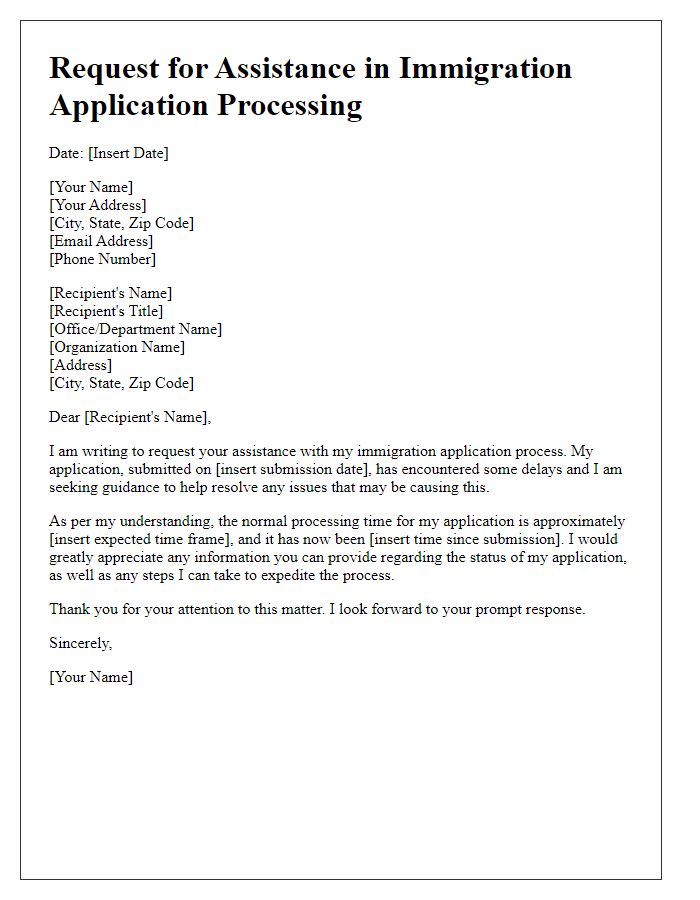
Letter template of request for professional immigration application assistance.
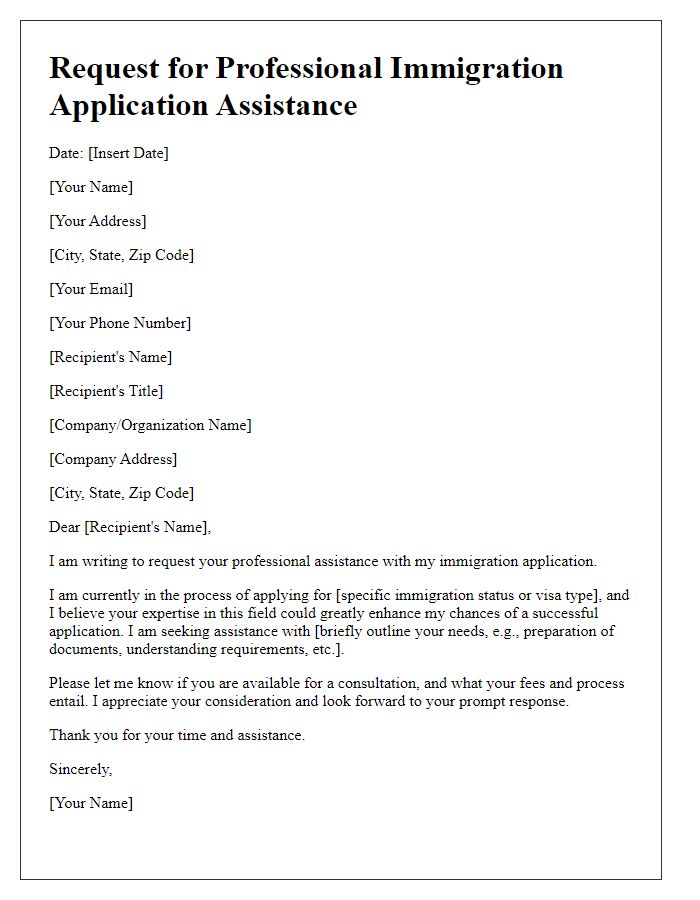
Letter template of application assistance for immigration status change.
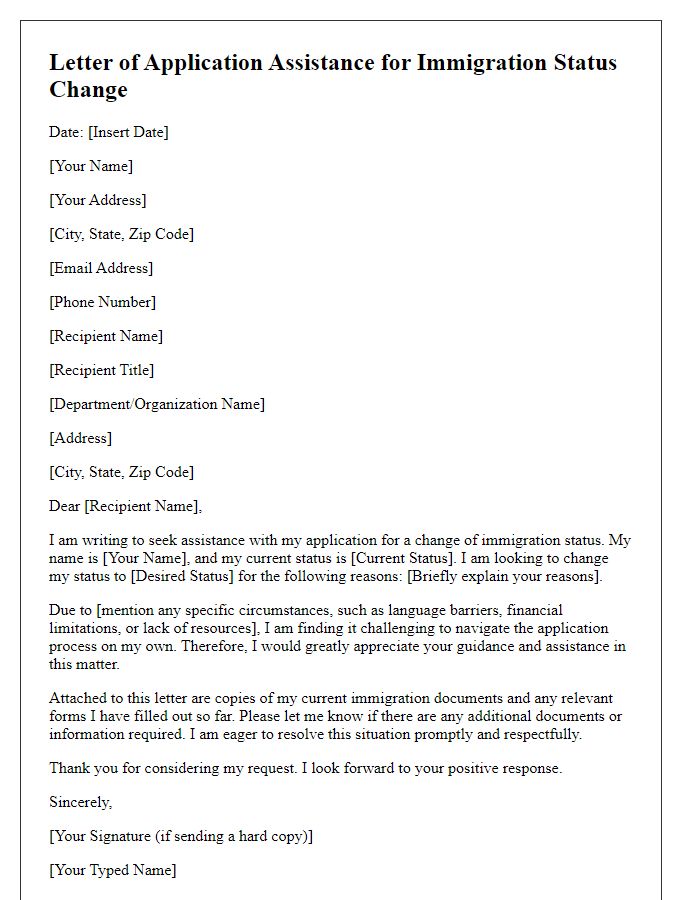
Letter template of clarification request for immigration application requirements.
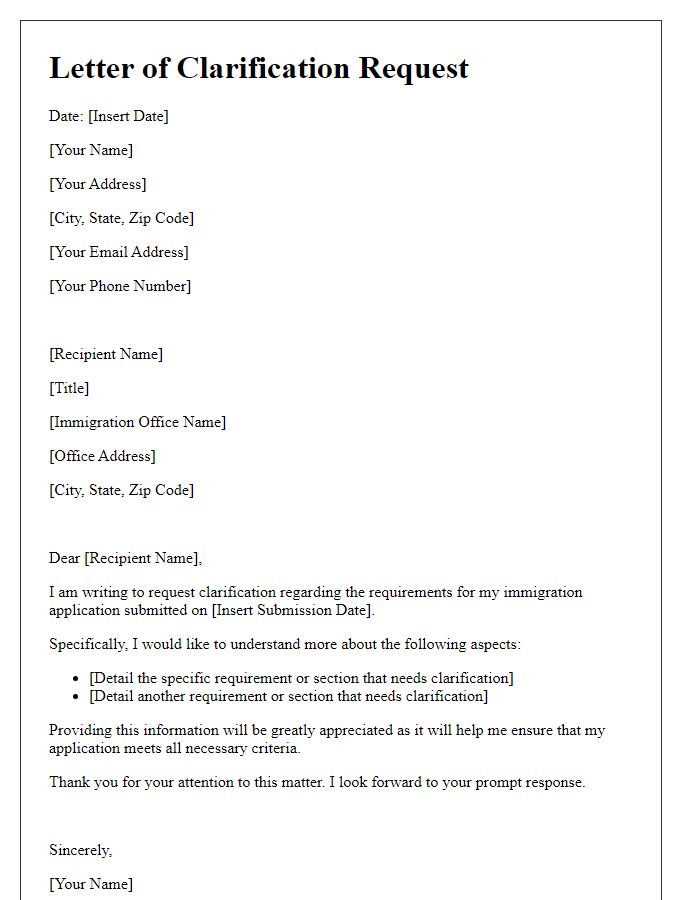

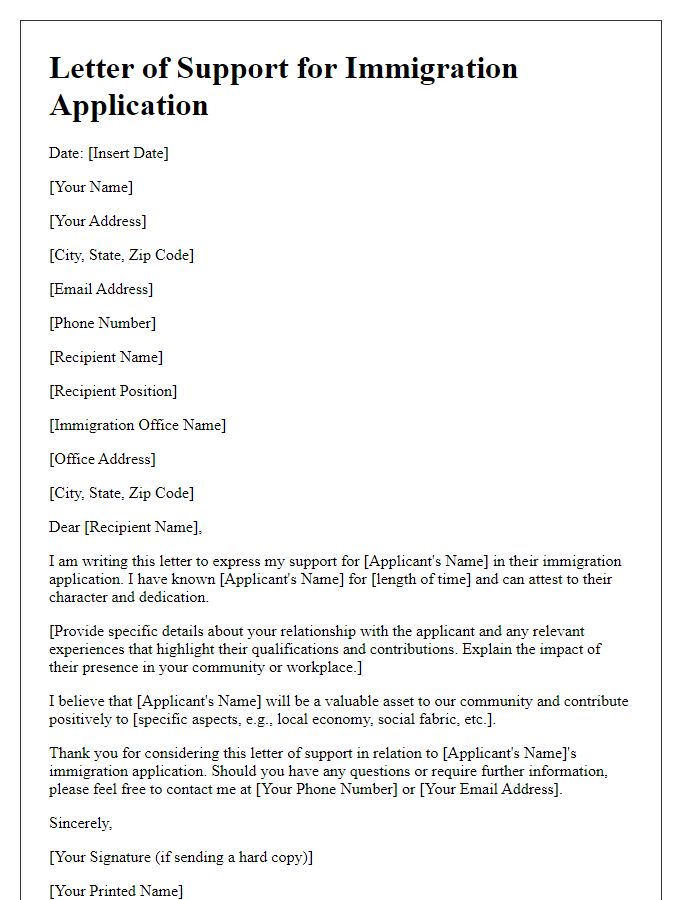
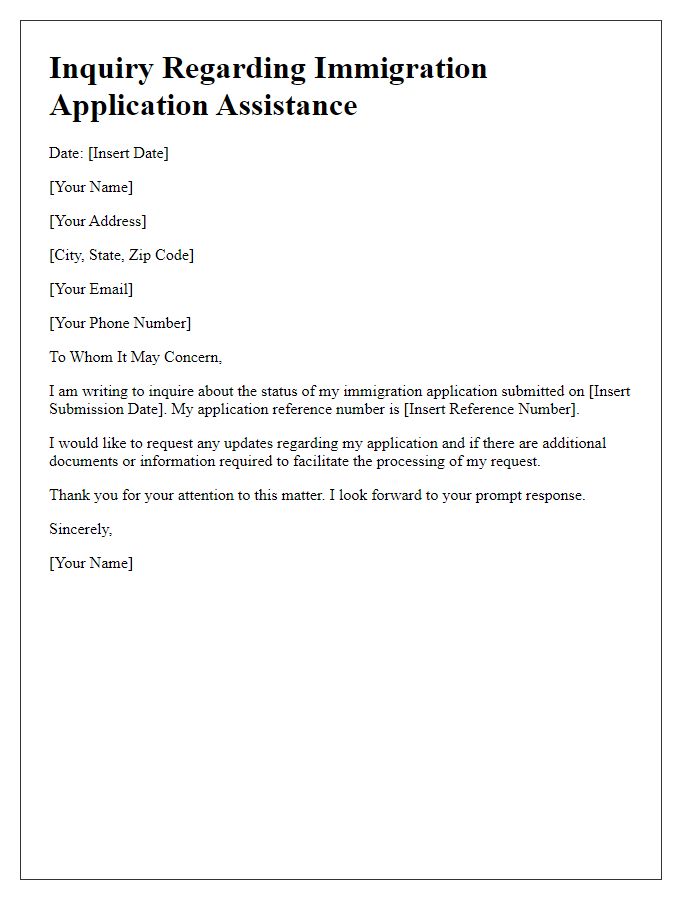
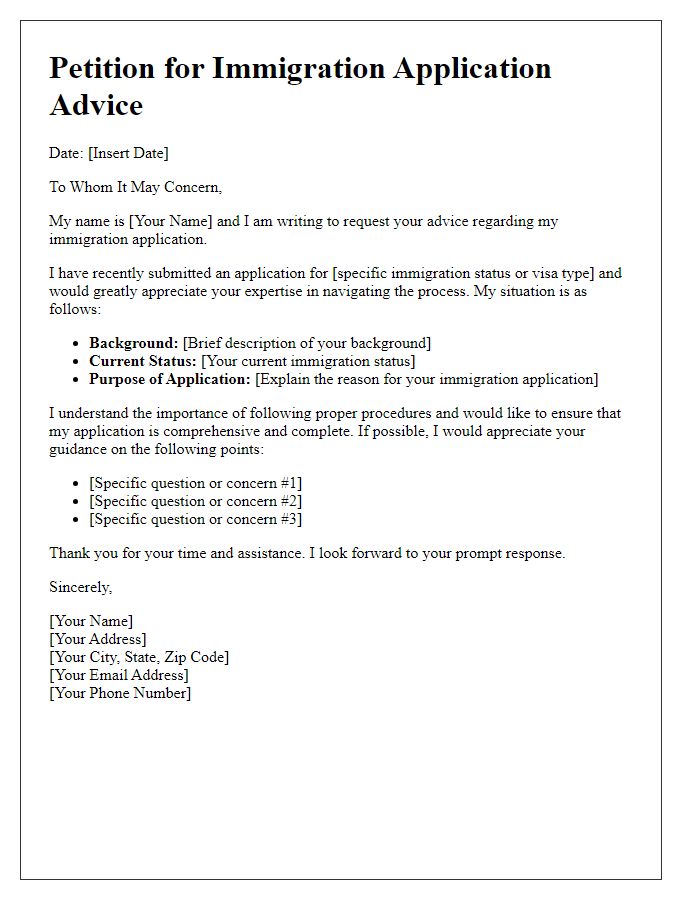
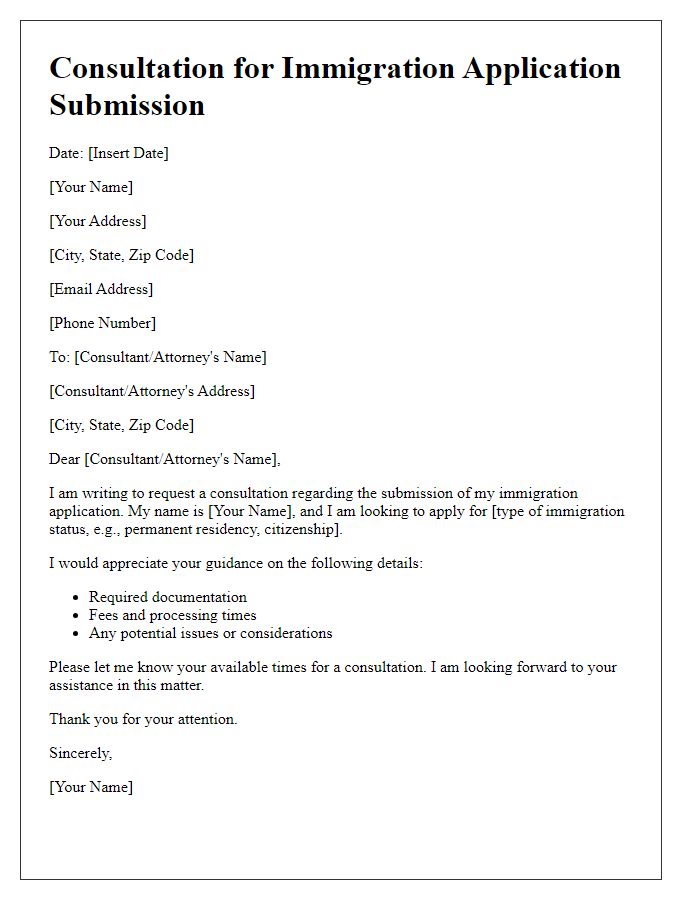
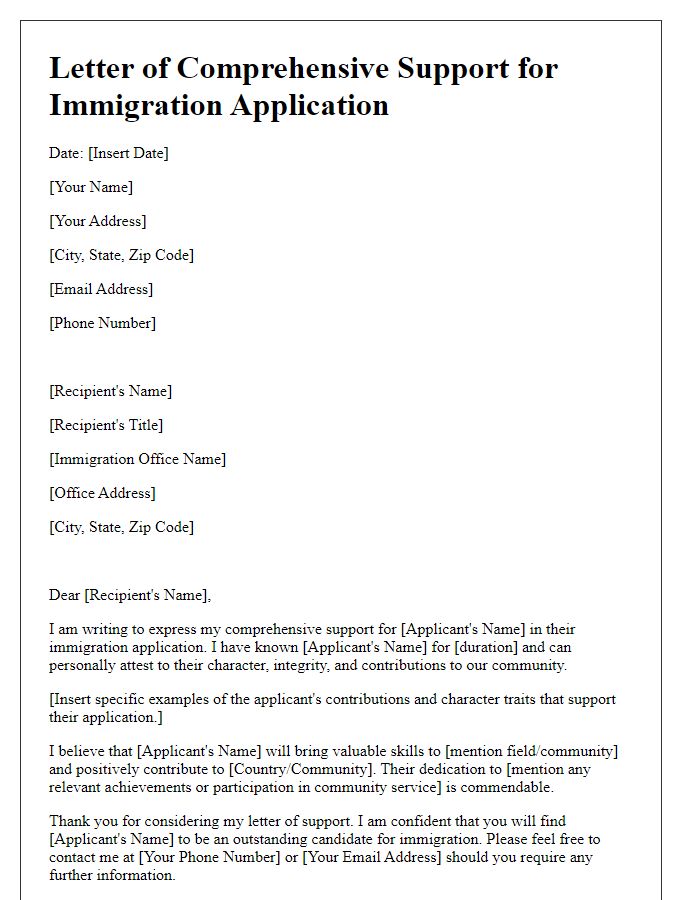
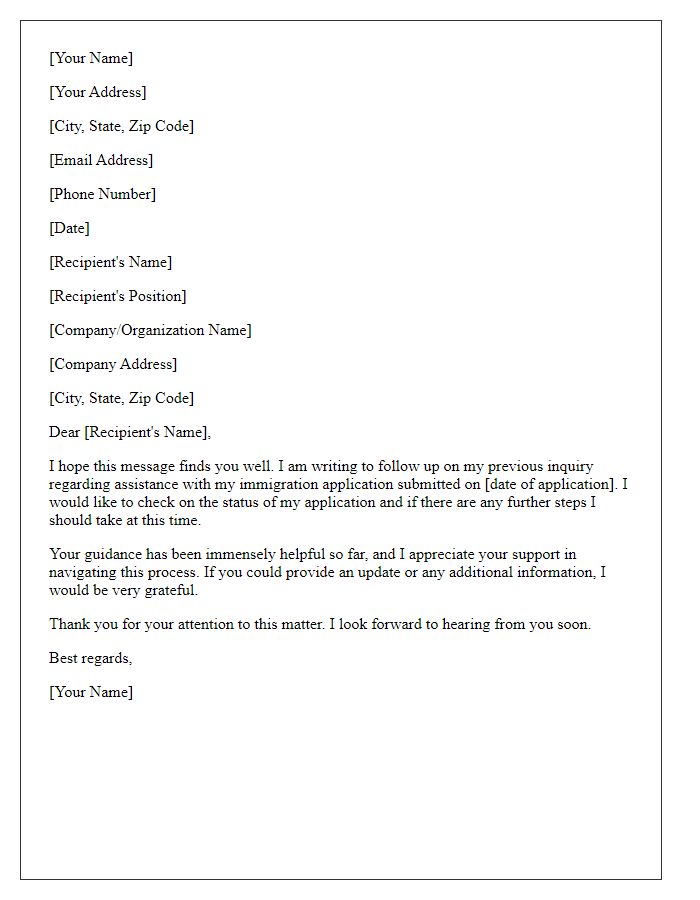


Comments